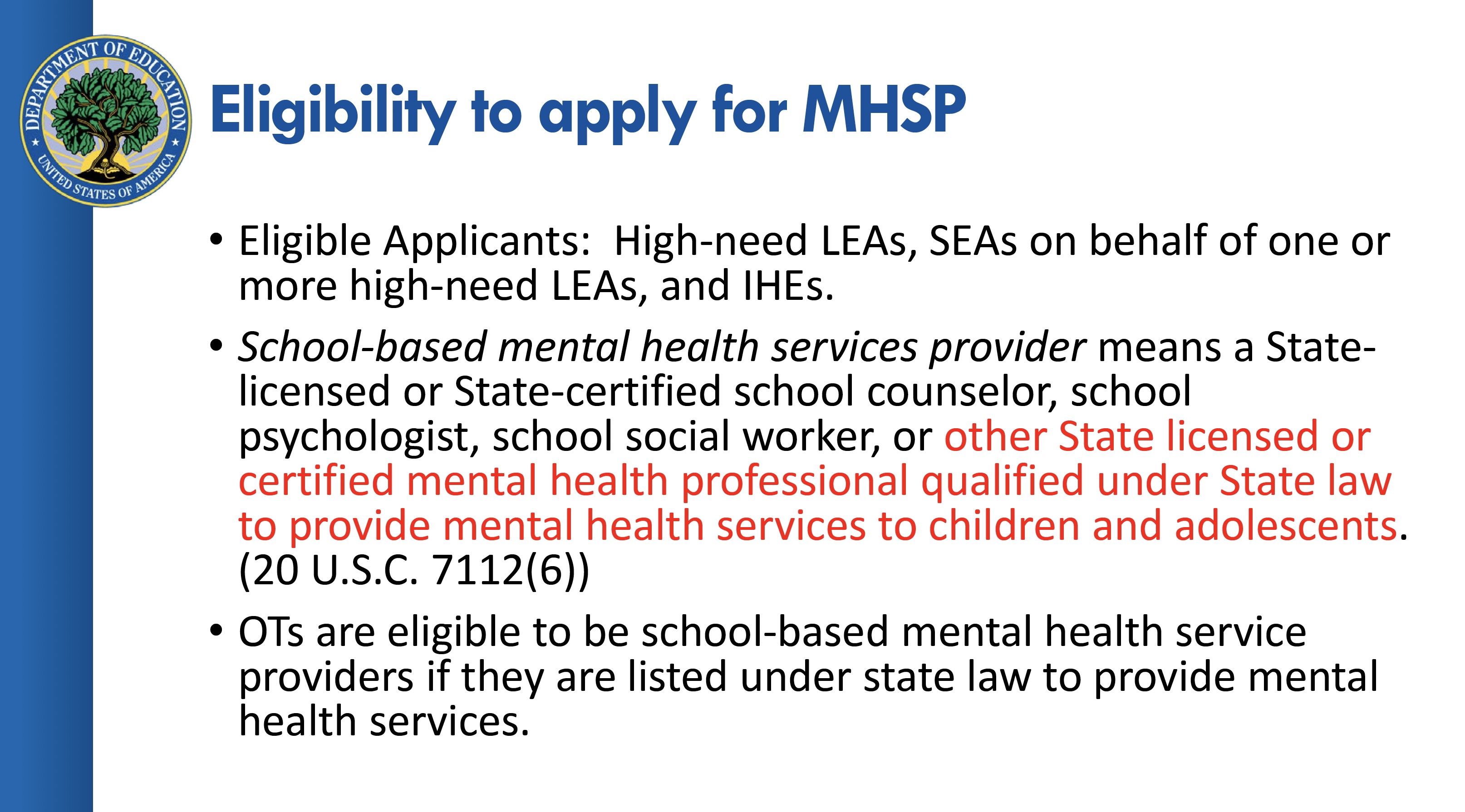Department of Education update on using federal grants to strengthen the school mental heath workforce
Ruth Ryder, the Deputy Assistant Secretary of Education for the Office of Elementary and Secondary Education attended AOTA’s 2023 Education Summit in Denver to present on the work of her and her colleagues, and to meet with faculty and students from the occupational therapy programs at the University of Incarnate Word and the College of St. Scholastica.
Ryder spoke to a packed room about the use of federal funds to strengthen the school mental health workforce, which is critical in addressing the youth mental health crisis facing the nation. While the focus of the presentation related to a range of federal mental health initiatives, including the Mental Health Service Professional (MHSP) grant, she highlighted that occupational therapy programs are eligible for these, and any federal Department of Education mental health grants, as long state law allows for occupational therapy practitioners (OTPs) to provide mental health services. Because every state practice act includes some variation of wording stating that OTPs may provide interventions to address cognitive, psychosocial, and psychological deficits, all occupational therapy and occupational therapy assistant programs are eligible to apply for these grants.

Prior to her presentation, Ryder met with representatives from both OT programs and AOTA staff, which allowed her the rare opportunity to speak directly with those who benefited from the grants her office oversees - specifically the MHSP grant. What made this meeting even more impactful was the University of Incarnate Word and the College of St. Scholastica were the first two OT programs to receive grants specific to general education student mental health. Over the nearly 2-hour-long meeting, the faculty and students were able to articulate the distinct value of and vital need for occupational therapy in mental health.
Ryder's attendance at the Education Summit helped raise awareness among educators and practitioners about the benefit of incorporating occupational therapy into school mental health programs to achieve a holistic and comprehensive approach to student success.